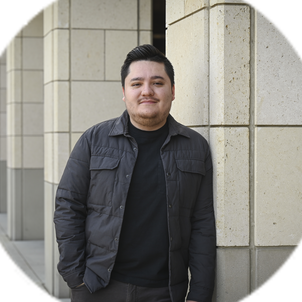These two industries in California have a huge impact beyond the borders of our state. Unfortunately, in both Hollywood and here in Silicon Valley, we can see how a lack of diversity in the workforce has limited the quality of their products. We see relatively few films that tell stories of female protagonists, and we see search engine algorithms that provide racist results to innocent queries.
I want to help students see how they can change the systems that perpetuate lack of diversity in the tech industry. One of the classes I’m teaching this fall, Race and Gender in Silicon Valley, will look at how these systems came to be in their current form, and what we might see more of in the future as machine learning and AI integrate even deeper into our daily lives. The class is a mixture of readings, discussion, and field experiences to do close observations of the environment here on our own campus and just steps off campus in the workplaces of Silicon Valley.
I'd like students to bring their own experiences with technology and STEM education to our discussion in class. So many students feel discomfort with some aspects of what they observe about technology’s relationship to society, and studying the underlying history and sociology can help students see how their personal experiences fit into larger patterns. An affirming message I can offer students based on the research is that we all must approach our computer science education and our careers in tech as a process. We all grow through practice and applying ourselves. The idea that it's “natural” or easy for anyone is really an illusion.
I have a commitment to making CS 80Q a class that will speak to the challenges that every student faces. While building understanding that there are systemic forces of oppression that particularly affect people of color, women, and gender non-conforming individuals, we can also appreciate that these systems of oppression really have negative impacts on everyone — including the stereotypical engineer! These forces create pressures and restrictions on the kind of person that you’re allowed to be.
I hope that students will walk away from the class with the confidence to be able to speak thoughtfully about issues of race and gender when they're out in the workforce. Whether it’s addressing an issue affecting their fellow employees, or an engineering decision that impacts the broader society, I hope that they can be that person who raises their voice to say let’s take a closer look at who this impacts and how we can shift that in healthier ways for everyone.
Related spotlights

Adrienne Propp

Lara Weed

